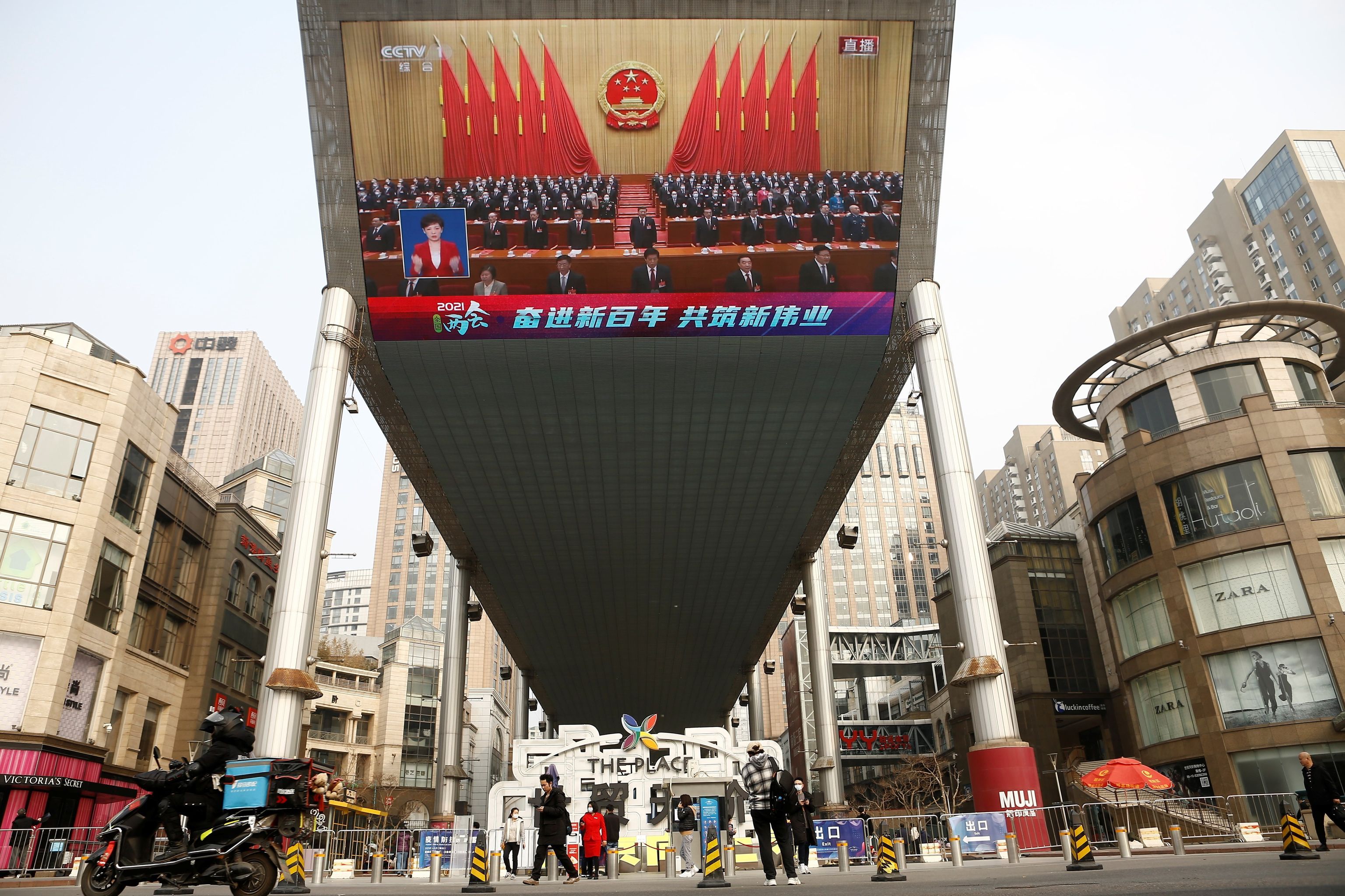An Agenda for Difficult Times: End of the Session of China’s Parliament

What is the function of the NPC?
The National People’s Congress (NPC) serves as China’s parliament. Every year more than 2,000 delegates meet to approve the decisions of the Chinese Communist Party (CCP) leadership, including adopting new laws. A report on the work of the government is presented, as well as reports by the heads of the Supreme People’s Procuratorate. The Chinese People’s Political Consultative Conference (CPPCC) session is held in parallel with the NPC. The CPPCC is an advisory body consisting of, among others, representatives of Hong Kong, Macao, ethnic minorities, athletes, artists, and scientists (more than 2000 people in total). The CPPCC session is mainly used to transfer information from the CCP to non-party circles. Due to the pandemic, both meetings lasted only a week and delegates were vaccinated in advance with a Chinese vaccine.
What political topics dominated the session?
The NPC adopted changes to Hong Kong’s electoral law that limit the opposition’s ability to participate in elections to the region’s legislature and give the central government even greater influence over the election of the head of the HK executive. By this, the Chinese authorities have again violated the principle of “one country, two systems”. In a government report, Prime Minister Li Keqiang announced an increase this year in the official budget of the armed forces by 6.8%, compared to 2020. Both he and representatives of the Chinese military apparatus emphasised the need to modernise the army, a call reflected in the development plan until 2035 adopted during the NPC. They stated the army is to be constantly ready for action, citing a possible declaration of independence by Taiwan, the escalation of disputes with India, or potential for an escalation in the conflict with the U.S.
What are the plans for economic development?
In the government’s report, Prime Minister Li presented the estimated economic indicators for China in 2021, including a forecast of over 6% GDP growth (compared to 2.3% in 2020). The budget deficit is to drop slightly to 3.2% of GDP. Development plans were also adopted at the session: the five-year (2021-2025) and a long-term one until 2035. They envisage expanding China’s potential, strengthening sectors in which it has a strong position (e.g., 5G), and reducing dependence on foreign cooperation, including with the U.S., in selected areas such as the supply of microprocessors. Therefore, research and development expenses are to be increased (7% during the year). The key sectors for China include artificial intelligence, quantum computing, genetics, and space exploration. During the NPC, China also ratified the RCEP free trade agreement and once again declared the possibility of joining the CPTPP.
How will the decisions of the NPC affect China’s internal situation?
Parliament’s decisions indicate the authorities’ cautious assessment of the internal situation in China. During the session, problems related to food production, demographics, and unemployment were of great importance (11 million urban new jobs are to be created this year). The authorities plan to further eliminate restrictions on the settlement of rural people in cities (the hukou system), and to provide subsidies to the poor. They announced an increase in privileges for veterans, including their families after death (e.g., Chinese soldiers in the clash on the border with India in June 2020). Although the government has declared a reduction of CO2 emissions by 18% within five years, it has not announced, for example, a ban on the construction of new coal-fired power plants or the imposition of emission limits on other harmful substances (as in earlier plans).
Will there be a change in China’s relations with the U.S. and the EU?
During the session, the Chinese authorities presented a more conciliatory approach to the U.S. than in recent weeks and strengthened the message about strategic cooperation with the EU. However, they emphasised China’s systemic advantages in relation to the U.S. and the EU, such as its better economic performance, and touted a more effective response to the COVID-19 pandemic. Government officials also pointed to “U.S. lies” in relation to the accusations globally about a Uighur genocide in Xinjiang. Chinese Minister of Foreign Affairs Wang Yi pointed to the positive assessment of the investment agreement with the EU and China’s willingness to ratify the ILO conventions on forced labour. An important signal to the U.S. and the EU was the rhetoric of opposition (also expressed during the CPPCC) to MEPs demanding Europeans boycott the Beijing Winter Olympics in 2022, among other topics.


